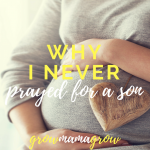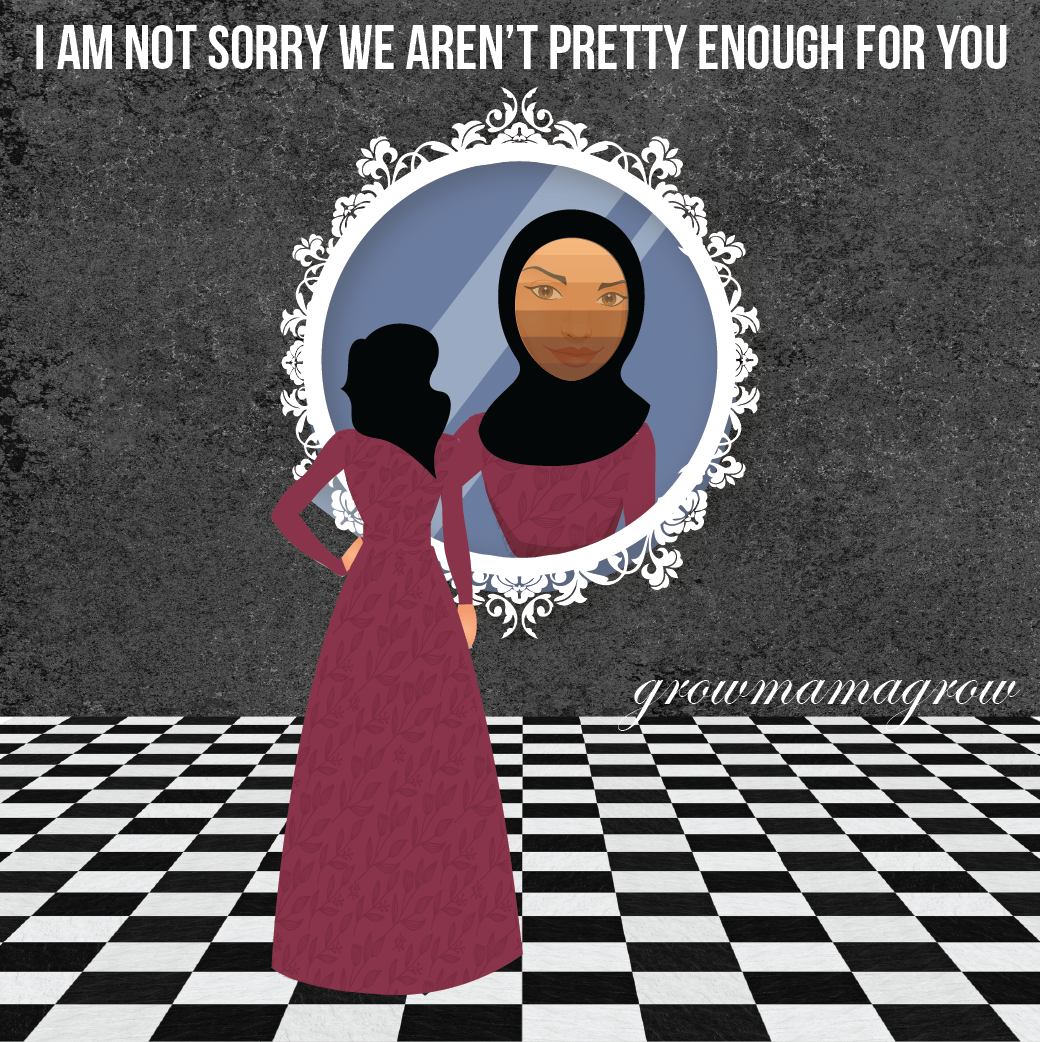Press the red button; wait impatiently for the robotic voice; hear the piercing buzzing noise allowing you in; watch the large wooden doors bang open disturbingly loud; walk down the glossy hall; pass the grim-faced nurses; turn left; there, beyond the glass sliding doors, lay our once 6’1, 200 pound, larger than life Baba- with his booming voice, contagious laugh, and decades of smile lines carved deeply into his beloved face- reduced to a skeleton barely taller than I am and weighing only 100 pounds. I remember thinking that Holocaust victims look obscenely healthy in comparison.
It all seems surreal, but deep, deep down inside, we always knew. How many times had he told us he would be leaving us behind soon? How many times did I unheedingly thrust away the worry and reply, in what I assumed was a bracing tone, “Baba, don’t say that. You will outlive me inshallah.”? Too late I recall that time Khadijah and I were bickering in the car on the way to work and Baba asking us to stop. “Ana sheebh qaab qossayan aw adnah (I am like one who is two bows lengths away or nearer; I don’t wish to see you fighting,” he would gently admonish us. Or the time, a mere five weeks ago as we proudly watched him put on his new hearing aids, he said in his most matter-of-fact voice, “I won’t be using these for long.” Or the time he informed us this would be the last Ramadan he spends with us. Or how, for the first time in innumerable years, he chose to skip the first Eid prayer after fajr in preference for waiting for his lazy daughters to roll out of bed and barely catch the last prayer.
Now I recall how I raged against the incompetent doctors and nurses who watched my father’s health decline rapidly and did nothing to relieve his pain and suffering. Instead, they drew blood from him nearly every hour of the day for an entire week, starved him to run test after test on him, disturbed his sleep, and finally left him in peace in his last hour. I recall my older brother Muhammad’s admonishment that I need ‘to tone down my anger.’ I remember how happy Baba was when Fatima told him not to worry about us, how Ahmed was coming back to be with us, and how I had gotten a promotion at work. He had shakingly pointed at me and jokingly said, “Maryam? How?! She skips work every other day!” and we all burst out laughing.
I recall sitting next to my daddy’s hospital bed on an uncomfortably stiff chair, completing form after form online for my new job, and refusing to sleep just so I could watch over him while he lay in painful slumber. I remember how, at midnight three days before his death, Baba’s friend Dr. Omeish came in to check on him, asked me how he was doing, and as I said, “3mo, he’s getting worse,” merely nodded his head sadly. I appreciated his silence and refusal to mutter empty words of comfort. I tenaciously held on to my hope, but deep inside, I somehow sensed his end was near.
I woke this morning at 5:12 a.m. with an odd sense of urgency. My fingers itched to write a final tribute to our dearest father. I quickly got up and jotted down my thoughts before my notoriously bad memory failed me. Exactly ten days after the death of my daddy, I muse over all these signs that we chose to ignore, and all I can think is subhanallah, truly, if I only knew al ghayb (the future) how I would have multiplied my good deeds toward him. We all take our loved ones for granted until they are suddenly ripped away from us. How I achingly wish I let my Baba know how much I love him, appreciate him, and miss him before he slipped into his coma. How I wish I could keep on stroking his long brown fingers, kiss the dark sujood mark on his forehead, and run my fingers through his soft salt n’ pepper curls.
I thank Allah daily for His blessing that I chose to remain in the U.S. this year instead of attending graduate school at the American University at Cairo. How grateful I am I was able to spend these last few months with my daddy. I also thank Him for the borrowed time He blessed us with when Baba was hospitalized after catching a horrible case of pneumonia back in January 2009 upon his return from Hajj, and again in March 2010 when he operated on his heart. Each time, the doctors kept telling us how he barely brushed past death. And finally, I thank Him for making the duration of my father’s pain and suffering so short. Al7amdillah ya rab, al7amdiallah a thousand times.
A week after his burial, we visited Baba. I watched my niece Shifaa digging at his grave so that she could “see Giddu’s feet” and repeatedly chattering to him while patting the dirt over his grave, “Giddu, inta wa7ashtinah (Grandpa, we miss you).” My heart broke. As I watched her yell and rage against an ant that dared to “walk on Giddu’s tummy”, I couldn’t help smiling. I watched while my other niece Sumayya arranged the flowers around his grave in an orderly line. I watched the wind whisper softly among the trees and the sun beat down on the field as a butterfly flitted from flower to flower, and for the first time, I felt peace.
As Khadijah and I walked around the field sending our special salams and duaas to all those we knew, I realized the terrible pain and anger were gone. Our Baba isn’t alone: Here lay Hala’s mom, dead from ovarian cancer on the same day as Baba. There lay Shazee, my college friend who died a mere week before my daddy. There is the Abudayeh’s father, 3mo Bashir, and Hajjar’s mom, all dead from various forms of cancer. I vividly see the great contrast to my father’s burial a week before. Then, the skies wept with us as the rain mixed with tears on many of the attendees’ faces.
Surrounded by our closest friends who held umbrellas over us shielding us from the rain, I watched the hundreds of attendees who traveled from as far as California, Texas, New York, Michigan, West Virginia, and Maryland to pay their final respects to a most beloved man, and I realized that the world is indeed a poorer place for the loss of my Baba. I listened to the beautifully heartfelt duaa made by 3mo Dawood and Dr. Hani, and upon hearing the appeal that Allah accept Baba as a shaheed (martyr) as our Prophet promised all who die of an incurable stomach disease, I experienced a great balm to my soul. “You’re a shaheed,” I whispered to Baba as I smiled down at his casket. I ignored the hostile looks and murmurs of a few ignorant men who believe females should not attend burials and remembered Fatima’s wise words, “Maryam, we are not here to fight. Baba would not be happy.”
In all honesty, some days are more difficult than others. Friends keep coming and going; one of my daddy’s friends came by the other day and mowed our lawn. Long-ago friends across the globe- from Egypt, Sudan, Jordan, Bahrain, and Saudi Arabia- called to give their condolences. It is amazing and gratifying alhamdillah to see how many people loved him purely for the sake of Allah. They estimate around 1,200 attended his janazah and another 200 his burial. That would have made Baba humbly happy. While I smile and welcome our guests, trim and water the bouquets of ivory lilies, roses, and petunias sent from work, I pause and listen to what my heavy heart is telling me, and I hear a mantra repeatedly going through my head, “I miss you daddy…I missyou daddy…I missyoudaddy…Imissyoudaddy…”
I then turn to the Quran for solace: Never have the verses,
(“يَا أَيَّتُهَا النَّفْسُ الْمُطْمَئِنَّة *ارْجِعِي إِلَى رَبِّكِ رَاضِيَةً مَرْضِيَّة* فَادْخُلِي فِي عِبَادِي* وَادْخُلِي جَنَّتِي”
rung so achingly true I read the final verses Baba reached in his daily recitation of the Quran:
“قَدْ أَفْلَحَ الْمُؤْمِنُونَ* الَّذِينَ هُمْ فِي صَلَاتِهِمْ خَاشِعُونَ* وَالَّذِينَ هُمْ عَنِ اللَّغْوِ مُعْرِضُونَ* وَالَّذِينَ هُمْ لِلزَّكَاةِ فَاعِلُونَ* وَالَّذِينَ
هُمْ لِفُرُوجِهِمْ حَافِظُونَ* إِلَّا عَلَى أَزْوَاجِهِمْ أوْ مَاَمَلَكَتْ أَيْمَانُهُمْ فَإِنَّهُمْ غَيْرُ مَلُومِين*فَمَنِ ابْتَغَى وَرَاء ذَلِكَ فَأُوْلَئِكَ ُ هُمْ ُالْعَادُونَ* وَالَّذِينَ هُمْ لِأَمَانَاتِهِمْ وَعَهْدِهِمْ رَاعُونَ* وَالَّذِينَ هُمْ عَلَى صَلَوَاتِهِمْ يُحَافِظُونَ* أُوْلَئِكَ هُمُ الْوَارِثُونَ*الَّذِينَ يَرِثُونَ الْفِرْدَوْسَ هُمْ فِيهَا خَالِدُونَ”
(Al Mu’minun, v. 1-11) and I am further reassured as the nagging worry constricting my heart over his loneliness in the grave so far down is washed away.
Subhanallah, I keep replaying a time line of my Baba’s life since he was diagnosed in June 2006, and I keep crying. There is nothing more traumatizing then seeing your larger than life father getting more tired year after year, and then month by month, then day by day, and finally, by the hour, until eventually even his mind began deteriorating as well. By the end, he stopped even recognizing people, and he kept repeating strange phrases over and over (“salamak, salamak”). Who knows sub7anallah, but I do not believe he was even talking to us or seeing us by then. He was always ready to see his many visitors and greet them with his special warm and welcoming smile…but then I could tell it started exhausting him, especially when he could not remember who was visiting him. He would spend 20 minutes after that person left trying to remember and then suddenly he would nod, and say: “That man’s name is so and so….” and then fall into a labored asleep.
I agonizingly regret that Baba will not witness our many life achievements firsthand: Mo’s newborn Musab growing healthy and strong inshallah; Fatty’s Shif Shif and Soumy taking over the world; Ahmeda married with kids for daddy to boss around; Deej receiving her M.S. in Public Health; Asse a daktorah; and his baby Mash Moush finally grown up. Subhanallah, qada2 we qadar. All my friends who lost a parent tell me it will get harder before it gets easier. And all I can say to people when they ask how I am doing is: “It’ll get better inshallah.”











